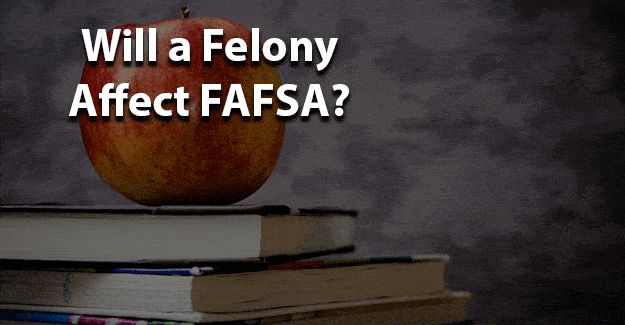Finding a job with a felony conviction is difficult. It is probably the biggest challenge a felon faces.
For many, their old job is probably gone. They may have to start over in a new career.
One way to begin a new career is to get additional education. This can be expensive, and felons may not have the financial resources to afford this education.
There are ways to obtain grants and loans for that education.
This blog post will address the question of whether a felony will affect FAFSA.
- What is the FAFSA?
- Eligibility as a Felon
- Making Their Case for Financial Aid
- Supporting a Felon in Applying for College Financial Aid
What is the FAFSA?
The Free Application for Federal Student Aid (FAFSA) is the form that determines a student’s eligibility for federal student assistance and how much aid they can get.
It is administered by the U.S. Department of Education and is the first step in applying for federal grants, loans, and work-study funds.
A potential student’s eligibility for federal grants and loans is based on financial need through the use of the FAFSA. The FAFSA also determines eligibility for state grants and loans.
The requirements for federal student aid are to:
- Be a U.S. citizen
- Have a Social Security Number
- Have a high school diploma or GED
- Be enrolled or accepted as a student in a college program that participates in the federal student aid program
- Not owe on a federal grant or loan
- Have financial need
- Not have certain drug convictions
Felons that were convicted for possession or sale of illegal drugs while receiving federal student aid cannot receive federal aid unless they complete an approved drug rehabilitation program.
Those convicted of possessing or selling drugs after submitting FAFSA will lose their eligibility and must repay all financial aid received after their conviction. Those convicted before enrolling in school are not necessarily ineligible for aid.
Those with other types of convictions can receive grants and loans through FAFSA if they qualify financially. Felons who are currently incarcerated are also ineligible for financial aid.
Felons that have their record expunged, do not have to report any conviction on the FAFSA.
Making Their Case for Financial Aid
Felons must take their situation seriously and have a goal of continuing their education. No, it won’t be easy.
But there is an opportunity available to those who want it.
Doing the things that it will take to reach that goal and get that education will be challenging, but what hasn’t been since leaving prison?
Felons need to be willing to do what it takes. Don’t let a felony conviction stop those plans for a better future.
They should be honest in completing the FAFSA. Making false statements on the FAFSA is a criminal offense that could result in returning to prison.
It is important to check their eligibility to have their record expunged to make it easier to get financial aid.
Supporting a Felon in Applying for College Financial Aid
An important factor is the support of family and friends.
This is when they can step forward and be honest with their loved one. Don’t let them set themselves up for failure.
This is typically when felons decide to continue to live an honest life or return to their criminal ways. Applying for an academic program is a major step in returning to society and beginning a successful career.
It is expensive to attend school, but there are loans available even if they do not qualify for federal grants or loans through FAFSA.
Do everything possible to support their dream and help them succeed.
When considering a possible career and living an honest life, it is important.
What do you think about this blog post? Are you or someone you know been in the situation of trying to apply for college financial aid with the FAFSA ? What was that like for them, and how did they achieve success? Please tell us in the comments below.








Fe
Fe
I have a question, I was recently convicted of 2 accounts of assault on a federal officer, I went to trial and plead a dead with the government since I’ve never been convicted and had a clean record all my life, the deal was time served with supervision or probation, which I got probation, but my question is I had applied for financial aid months before I was convicted or plead guilty, I’m starting school in a few weeks, does this mean my chances of getting financial aid are over?
I have a question, I was recently convicted of 2 accounts of assault on a federal officer, I went to trial and plead a dead with the government since I’ve never been convicted and had a clean record all my life, the deal was time served with supervision or probation, which I got probation, but my question is I had applied for financial aid months before I was convicted or plead guilty, I’m starting school in a few weeks, does this mean my chances of getting financial aid are over?